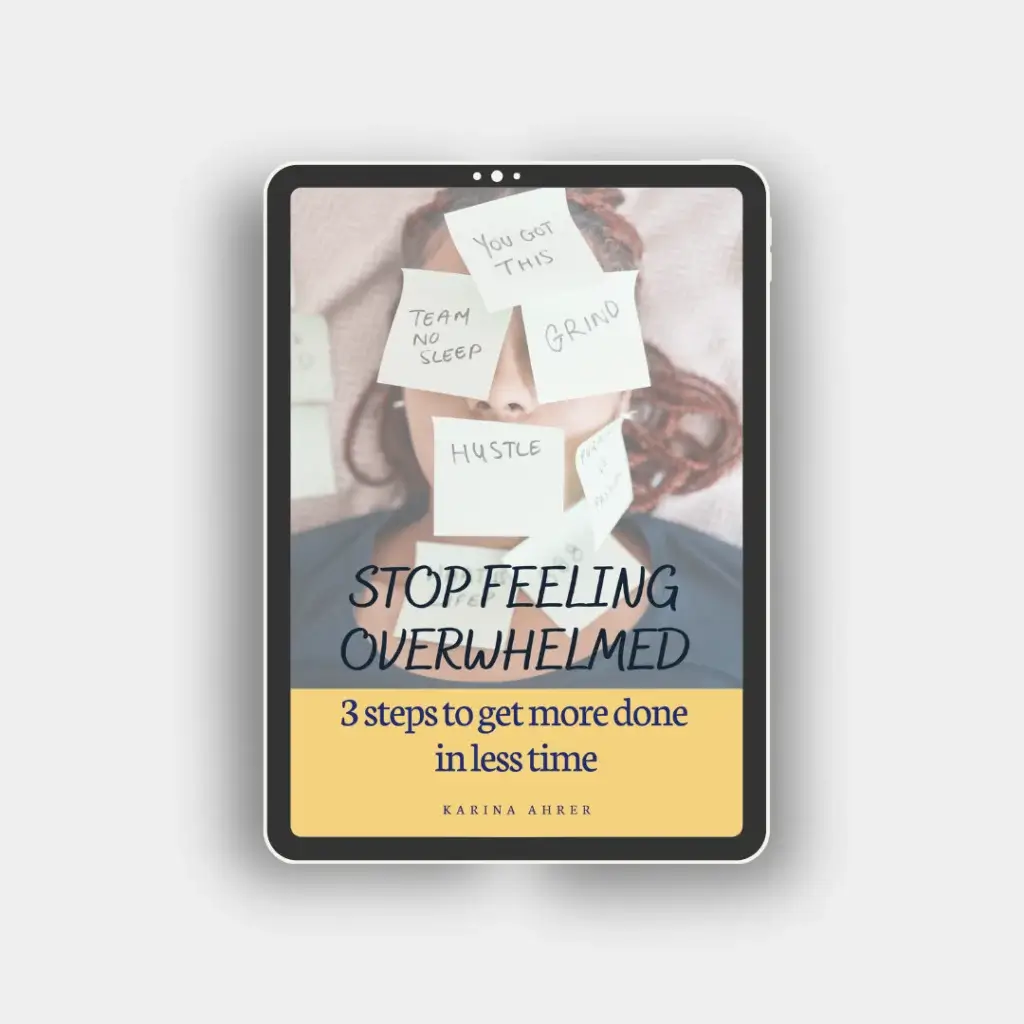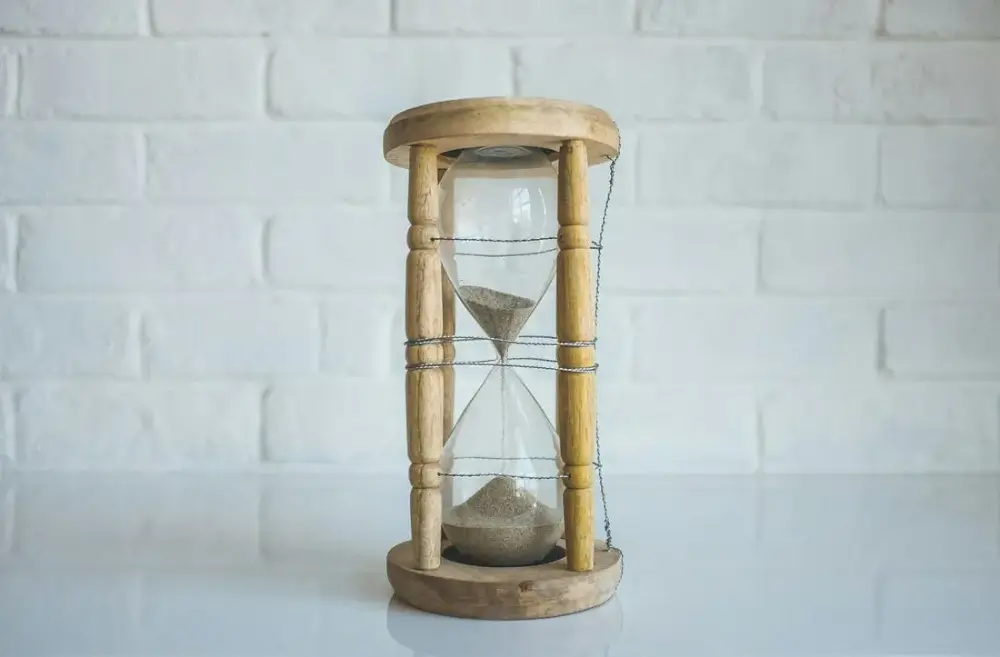Take charge of your productivity and prevent wasting time with my 3 strategies
Currently, I have the possibility of trying out time freedom. I’m focused on writing my master’s thesis without pressure and with a lot of time.
I purposely took that time not to have a part-time job or anything else going on, but to use it for my master’s thesis and my online business.
After 2 years of:
- studying
- working part-time
- being the president of a student organization
I’m glad to try out having time for my own priorities.
- reading
- master’s thesis
- figuring out how I want to live in the future
- going for walks
- writing
But there are new challenges now. I don’t have a structure or plan for everyday life. I have fewer to-dos.
This is freeing. Especially for me, overthinking everything. But this also means I have to make my own structure and plans. I’m not dependent on anyone, like before.
That’s actually exactly the freedom I was striving for in the future. I have the freedom to choose my own projects and how I spend my days.
Not having structure wastes a lot of time
It sounds good to have the freedom to do whatever. But I wasted a lot of time asking myself, “What should I do now?”
At school, university, or in a job, you have times when you need to be there, and people decide what you should do.
Isn’t that one thing we like to escape?
Now it happened to me, and I’m wasting time doing nothing. There was also this external pressure to look busy or have submission dates.
So what should I do now?
I thought that choosing spontaneously what I wanted to do was freedom. It’s not. It’s actually wasting a lot of time because you don’t have a plan.
So, what am I doing now?
I know what my goals and priorities are. There is no official submission date for my thesis, but I decided on one that fits into my plan for the future.
Instead of floating through everyday life without plans, I’m returning to my time management strategies, which worked well the last 2 years to structure my weeks.
I’m:
- setting my own goals
- plan my weeks
- have focused time
Setting goals
I don’t have any external submission dates, so I’m setting my own. This prevents wasting time and expanding work that can be done faster.
This phenomenon is called Parkinson’s law. Work expands to the time you have set.
“Work expands so as to fill the time available for its completion”
Parkinsons Law
My own submission date for my thesis is the end of June. To be done for summer, and to find a job beginning in July.
Otherwise, I could expand it further and further, and I know a lot of people have been “working” on it for more than 2 years.
I hate having unfinished tasks, so I’m usually good at getting them done fast.
Weekly plan with time blocks
Every Sunday, I’m planning the week. I know some events or meetings I need to attend (networking, family, student organization, university…), and around that, I’m adding time blocks to my calendar.
My current weekly structure is:
- Monday: writing my thesis day
- Tuesday: Online business day (scheduling, writing, learning, planning…)
- Wednesday: thesis day
- Thursday: newsletter and writing block, and then thesis again
- Friday: thesis for half a day and then free time
- Weekends: free time
Focused time and breaks
I’m using the freedom to experiment with focus times, breaks, and different routines.
I’m asking myself, “What does my perfect day look like?” and then I’m trying it out.
Working in an office and sitting all day is unhealthy. I prevent that by taking breaks every hour to move, and I’m going for a walk after lunch.
I’m finding the perfect time span for focusing, and currently, it’s around 45 minutes to 1 hour.
The mistake I made in the first few months was taking a longer break at lunch and watching TV. I kinda couldn’t stop. And then, after I came home from my walk, it was late, so I was not motivated to continue.
Conclusion
The free time I have helps me experiment with different structures and plans. I know I need to use it properly because I will no longer have that when I start a full-time job (in the summer).
Preventing lazy days in front of the TV takes some willpower, but it’s easier with the strategies I’ve written about. The goal is to have focused time to work on my priorities.
When I was working in an office, it wasn’t working that well, because there were people around me talking, and I couldn’t just take breaks every hour to walk around.
My focused time at home is not about looking busy (because no one else would see it anyway). It’s about healthily working on my priorities.
And then I get more done to have more free time every day to read, walk, or be creative.
That’s the freedom I was dreaming about.
Less Stress. More Time. Less Overwhelmed!
Get your free copy of my 3 steps!

Get daily insights, motivation, and inspiration:
If you are as addicted as I am to reading books, check out my favorite books!




